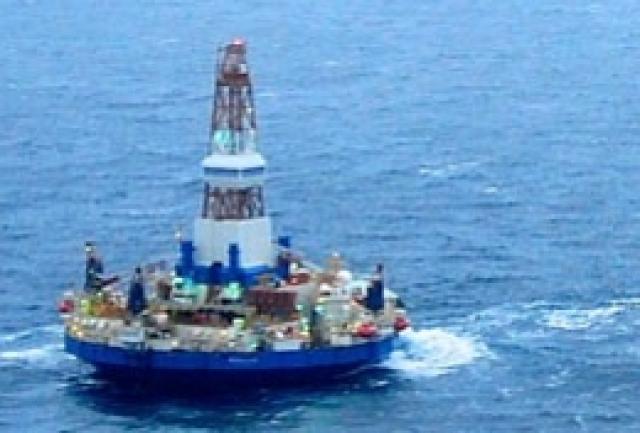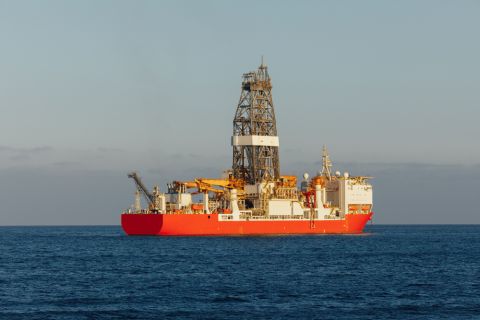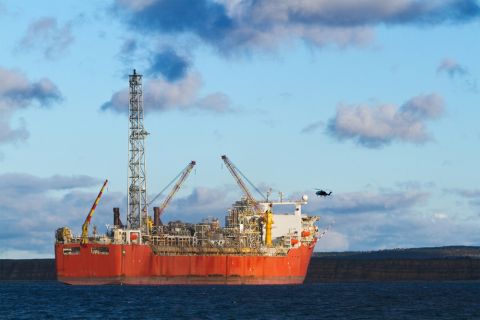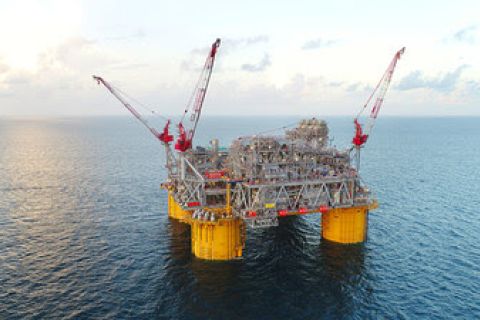
According to an article in the Wall Street Journal, Shell’s Kulluk drillship, which ran aground near Sitkalidak Island, Alaska, Dec. 31, 2012, has been floated from the rocks on which it was stranded.
The vessel was being assessed for damage before being towed to Kodiak Island’s Kiliuda Bay.
Early assessments indicate that the hull was not breached and no fluids were leaked. The Kulluk was carrying more than 140,000 gallons of diesel and about 12,000 gallons of lube oil and hydraulic fluid, the journal reported.
According to reports on Shell’s website, naval architects have confirmed that the vessel is structurally sound and fit for towing.
The vessel ran aground while being towed from Alaska to Seattle, Wash., for maintenance. It is one of two drillships being used in Shell’s Arctic Ocean drilling campaign. CNN reported that the 81-m (266-ft) diameter vessel was headed back to port for maintenance when it first encountered the storm Dec. 28. The 18-man crew was evacuated, and the Kulluk drifted for 10 hours after its towing tug lost power.
Crews were forced to cut the vessel loose Dec. 31 in the midst of a storm producing 8-m (24-ft) waves. It eventually grounded near the island.
More than 730 people have been involved in the response and recovery operations, according to the Associated Press. Shell has amassed a “unified command” comprised of representatives from the US Coast Guard, Shell, and contractors helping with towing and salvage.
The incident came at an unfortunate time for Shell, which already was under fire for its plans to develop Arctic acreage, and Congress has called for a formal investigation. The Huffington Post reported that the House Sustainable Energy and Environment Coalition, comprised of 45 House Democrats, has called on the Interior Department and the Coast Guard to jointly investigate the incident.
“The recent grounding of Shell’s Kulluk oil rig amplifies the risks of drilling in the Arctic,” said the coalition in a joint statement. “This is the latest in a series of alarming blunders, including the near-grounding of another of Shell’s Arctic drilling rigs, the 47-year-old Noble Discover in Dutch Harbor, and the failure of its blowout containment dome, the Arctic Challenger, in lake-like conditions.”
Congress was not the only organization to view the grounding as proof that drilling in the Arctic is a bad idea. Chuck Cluesen of the Natural Resources Defense Council told the Huffington Post, “This string of mishaps by Shell makes it crystal-clear that we are not ready to drill in the Arctic. Shell is not Arctic-ready.”
Still, the incident is not the debacle it could have been. “There has been no loss of life and no significant injuries as a result of this event, which is a maritime transit incident and not a drilling incident,” notes Shell’s website. “Shell is working hard with the other parties in the US Coast Guard-led Unified Command to ensure a safe outcome and to protect the maritime environment in the vicinity of the grounded vessel.”
Contact the author, Rhonda Duey, rduey@hartenergy.com.
Recommended Reading
Seadrill Awarded $97.5 Million in Drillship Contracts
2024-01-30 - Seadrill will also resume management services for its West Auriga drillship earlier than anticipated.
TotalEnergies Starts Production at Akpo West Offshore Nigeria
2024-02-07 - Subsea tieback expected to add 14,000 bbl/d of condensate by mid-year, and up to 4 MMcm/d of gas by 2028.
Well Logging Could Get a Makeover
2024-02-27 - Aramco’s KASHF robot, expected to deploy in 2025, will be able to operate in both vertical and horizontal segments of wellbores.
Shell Brings Deepwater Rydberg Subsea Tieback Onstream
2024-02-23 - The two-well Gulf of Mexico development will send 16,000 boe/d at peak rates to the Appomattox production semisubmersible.
E&P Highlights: Feb. 26, 2024
2024-02-26 - Here’s a roundup of the latest E&P headlines, including interest in some projects changing hands and new contract awards.





